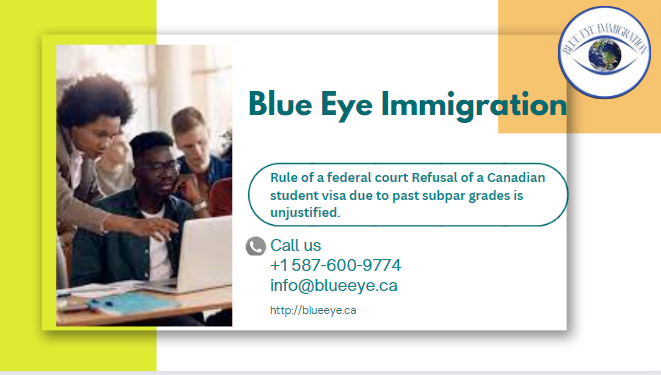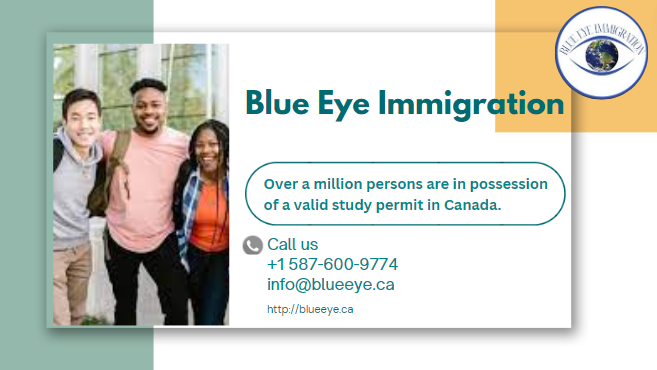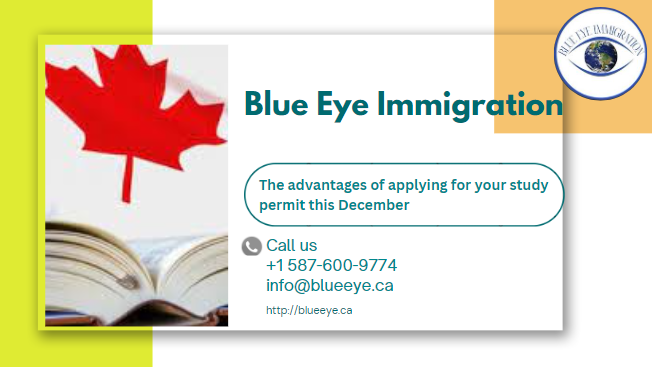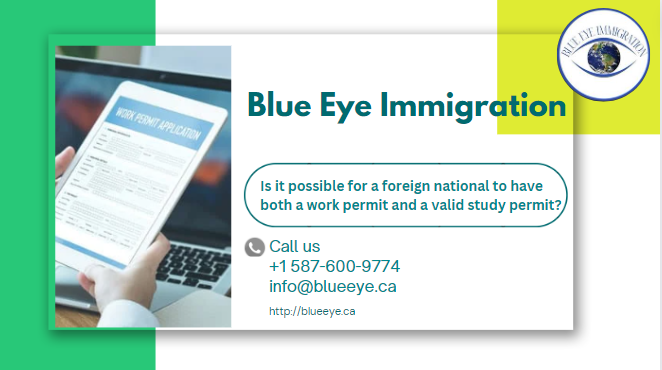According to the Federal Court of Canada, the denial of a study permit based on the applicant’s prior subpar academic performance and “inconsistent” academic aspirations was unwarranted, and as a result, the case was qualified for judicial review.
The candidate, an Indian national, was granted admission in 2021 to Niagara College in Toronto’s full-time graduate program in international business management. The applicant sent a study permit application and a request for a temporary residence visa to Immigration, Refugees and Citizenship Canada (IRCC) along with his letter of acceptance.
A notice informing the applicant that his study visa had been rejected arrived in the mail a few months later. The officer cited contradictory educational goals and poor prior academic achievement as the two reasons for rejection.
The inspector discovered, in particular, that the applicant had average marks from 40% to 59% in his key areas on his records from the University of Mumbai. The officer wasn’t convinced the applicant had shown the intellectual aptitude needed to finish the study program in Canada based on this information.
The officer pointed out that the applicant originally applied to Data Analytics for Business and was rejected, and then applied to an International Business Management, demonstrating the “inconsistency” of the applicants’ educational aspirations. The officer asserted that these educational objectives for Canada varied from application to application, and the applicant offered no justification for this discrepancy.
The court held that the officer’s findings with respect to his previous academic performance lacked justification and transparency. In particular, the officer failed to connect the dots between the applicant’s previous academic history and the likelihood of success in his intended program of study. The court is not in the position to assume that low grades in one area of study means that the applicant cannot excel in or complete a program in another area of study.
The court cited a similar case, Patel v Canada (Citizenship and Immigration), in which the judge remarked: “one can complete a program successfully without necessarily excelling in it. And many of the factors that can determine academic success are dynamic, not static”.
Further, Niagara College was clearly satisfied that the applicant had the necessary qualification to complete the program and to make “an important contribution” to the college.
about the consistency of the applicant’s educational aims, the immigration officer was unable to offer enough information about how the applicant’s educational goals were “inconsistent” because of a prior application to study Data Analytics for Business. The candidate gave a letter outlining his reasons for picking the degree in international business. It is unclear in this situation, especially without more explanation from the officer, how the officer came to the conclusion that the two applications showed “inconsistent” educational intentions.
The case suggests that a candidate’s ability to successfully complete another program or be granted a study visa should not be determined by their poor academic achievement in a previous program. Additionally, a candidate could look to enroll in several study abroad programs in Canada, like
How to request a student visa in Canada
An foreign student must apply to the school and be approved before submitting an application for a study permit after agreeing to study in Canada and selecting a course of study from a Designated Learning school (DLI). An foreign student must meet the following requirements to be qualified for a study permit:
- Obtain a DLI’s letter of acceptance.
- Show that you have the resources to pay for the first year of tuition, living costs, and the student’s return airfare to their country of origin.
- If you want to study in Montreal or anywhere else in the Province of Quebec, you must get a Certificat d’acceptation du Quebec (often known as a CAQ).
- have a spotless history. It is possible to reject applicants who have a criminal history or who constitute a threat to Canadian security. An applicant may be asked by IRCC to provide a police clearance certificate.
- possess good health. An applicant may be asked by IRCC to undergo a medical examination; and,
Ensure the immigration official that you will depart Canada after the time period allowed by your study permit has expired.
Direct Stream for Students
Some overseas students can apply for a Canadian study permit more quickly and easily with the help of the Student Direct Stream (SDS) program. Applications submitted under the SDS must be processed within 20 days.
The following nationalities’ citizens are specifically targeted by the stream:
- Barbuda and Antigua
- Brazil
- China
- Colombia
- India, Costa Rica
- Morocco
- Pakistan
- Peru
- Philippines
- Senegal
- The Grenadines and
- St. Vincent
- Tobago and Trinidad
- Vietnam
- An foreign student applicant must comply with the following requirements when submitting an SDS application for a Canadian study permit:
- Please send a copy of the Canadian DLI’s letter of acceptance.
- present proof of the applicant’s initial medical examination
- demonstrate that they hold a $10,000 Guaranteed Investment Certificate (GIC)
- Show proof that the first year’s tuition has been paid.
- Demonstrate that you passed a language exam within two years before submitting your SDS application.
IELTS Academic band scores of 6.0 or IELTS General Training scores of at least 6.0 are both acceptable to the IRCC for each language skill level (reading, writing, listening, and speaking).
The following English language exams will also be accepted by the IRCC beginning on August 10, 2023:
- CELPIP General (needs a minimum CLB 7 score)
- CAEL (60 minimum score required)
- English Language Testing by Pearson
- Educational (minimum score of 60)
- ETS stands for Educational Testing Service. required score of 83 on the TOEFL iBT test



